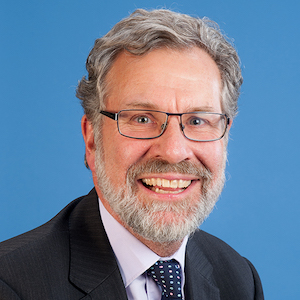-
Completely disagree Not only are there externalities, there are also direct negative effects of containment policies. Common sense as well as research show that while health is one of the most important things for people, it is far from being the only thing they care about. People, like economists, are willing to make tradeoffs. Similarly, the objective of policymakers is far from unidimensional, even in the short run.
Professor Ori Heffetz
Associate Professor of Economics, Cornell University and Hebrew University -
Completely disagree The psychological effects of social isolation may have long-lasting effects as well as increased fears concerning job securities and economic prospects.
Professor Ronnie Schob
Professor, School of Business and Economics, Freie Universitat Berlin -
Disagree A harsh lockdown in order to contain COVID will lead to quicker and more complete economic recovery, in addition to better health and mortality outcomes. However, policies are also needed to ameliorate the economic and mental health hardships caused by lockdown. For example, governments should be willing to borrow (at historically low interest rates!) in order to provide income replacement to individuals unemployed due to lockdown.
Professor Daniel Benjamin
Associate Professor of Economics, University of Southern California -
Agree Applications of a real options approach to policy indicates that early in the pandemic, attempted eradication was likely to be the best response. It kept open the option to relax lockdown if the response was (i) successful, or (ii) futile. Not pursuing eradication initially would have meant that the option of eradication was permanently foregone. Subsequently, the best response depends on the initial success in eradicating or containing COVID. On application of real options theory to this issue, see: Benjamin Davies and Arthur Grimes. 2020. "COVID-19, lockdown and two-sided uncertainty", https://doi.org/10.1080/00779954.2020.1806340.
Professor Arthur Grimes
Chair of Wellbeing and Public Policy, School of Government, Victoria University of Wellington -
Completely disagree I would have thought it pretty obvious that in implementing any policy, the totality of its effects, including externalities, should be taken into account.
Professor Mark Wooden
Professorial Research Fellow and Director of the HILDA Survey Project, Melbourne Institute: Applied Economic and Social Research, Faculty of Business and Economics, University of Melbourne -
Completely agree Historically, successful public health interventions have required coercive measures such as quarantines and vaccinations. This is no time for halfway measures, which are costing human lives.
Professor Richard Easterlin
Professor of Economics, University of Southern California -
Disagree Externalities should always be considered, not only to make balanced choices but also for the sake of public acceptance of policy choices
Professor Ruut Veenhoven
Professor of Sociology, Erasmus University Rotterdam -
Completely disagree Covid-19 is a serious threat to public health. It is necessary to enact the necessary measures to reduce infection rates to levels that can be handled by regional health care systems. Nevertheless, countermeasures have to pass a cost-benefit-test. They should only be imposed if their benefits outweigh their economic and social cost.
Professor Andreas Knabe
Professor (Chair in Public Economics), Otto-von-Guericke-University Magdeburg -
Completely disagree While containing the spread of COVID-19 is certainly an important policy goal, one must consider the costs of certain policies, particularly strict lockdowns that will decrease economic activity and also have their own health consequences (physical and mental). Also, policy debates are too often couched in binary terms (mask mandates vs. no mask mandates, keeping businesses open vs. keeping them closed), but it's crucial to consider the degree of restrictions that are imposed: how large of an outdoor gathering should be allowed, how much should capacity be reduced in indoor settings, or under what circumstances should masks be mandated or not?
Professor Stephen Wu
Professor of Economics, Hamilton College -
Completely disagree We do not take such a narrow approach in normal times, and should not do so now. We have lived for eons with infectious communicable diseases that are worse than Covid in terms of long-run destruction of health, and have not shut down whole economies in an effort to manage those diseases. My argument is summarised here: https://www.youtube.com/watch?v=mpyYwQFtF-U
Professor Gigi Foster
Professor, School of Economics, UNSW School of Economics -
Disagree "A well-being oriented policy needs to take all the consequences into the calculation. It is becoming clear that the most successful strategies for achieving results that maximize well-being do not involve a simple trade-off between lives and the economy, but instead focus on options that improve both. Thus it is likely that those countries that have most effectively controlled the spread of the virus have also been able to restart their economies and open their societies faster and with fewer risks to health. They have also been the countries which have recognized the stealth and geographic specificity of the virus and used this information to better decentralize and target containment measures. Examples of this best practice include New Zealand, Iceland, Finland, and Norway, to name a few. Strategies to avoid false tradeoffs also help to make the covid crisis one that draws societies together rather than creating internal divisions.(see the evidence on this uniting vs dividing response in the Aug 24 Pew survey covering 14 countries) Experience of past crises has illustrated that high levels of trust and generosity have enabled some countries to recognize and build their sense of common purpose, and hence their happiness, while others trade shame and blame, are are consequently less happy in the recognition of their failure to deliver for each other in times of need."
Professor John Helliwell
Professor Emeritus of Economics, University of British Columbia -
Completely disagree Lock downs, social distancing, and other covid-related policies have very direct and strongly negative effects on wellbeing. The unemployment and loneliness they directly lead to reduce mental health. The school closures they often involve are a direct loss to the future and current mental health of children, preventing them from developing. The locking away of the elderly causes extreme loneliness and essentially takes away their human agency and dignity. It would be inhuman not to factor in these severe negative effects into decision making, particularly because these negative effects are so huge because they apply to nearly the whole population. Indeed, as early as mid march I calculated these external effects to be at least 50 times worst than reasonable estimates of the potential loss from the virus. The focus on covid-related deaths and cases has lead to a blind disregard of individuals and societal wellbeing. It is likely to over time lead to more deaths, including in developing countries whose wellbeing has been totally disregarded by wealthier countries shutting their borders and trade.
Professor Paul Frijters
Professorial Research Fellow, CEP Wellbeing Programme, London School of Economics -
Disagree "The statement is correct only in the very short run, especially because the consequences of the COVID-19 infection were unknown. Otherwise, the negative externalities of the containment policies cannot be ignored. In particular, the experience of this pandemic has taught us that the effects of policies much depend on how they are perceived by the population (Fetzer et al. 2020). Social capital and confidence in the institutions are important (Bartscher et al 2020), but they are only part of the story. The pandemic has raised a demand for protection that must be met through both proper interventions and communication. Media thus play a crucial role in this. Governments should both gain and maintain credibility through recognising the severity of the situation, announcing feasible interventions, and acting accordingly. Over-action is better than inaction. The consequences of weak and unreliable policies can be far-reaching. For example, it seems that such weak policies can reduce young people's confidence in political leadership and institutions (Askoy et al 2020). Askoy CG, et al 2020, THE POLITICAL SCAR OF EPIDEMICS. NBER Working Paper 27401. Bartscher AK et al. 2020, Social Capital and the Spread of COVID-19: Insights from European Countries. IZA DP No. 13310 Fetzer TR, et al. 2020, GLOBAL BEHAVIORS AND PERCEPTIONS AT THE ONSET OF THE COVID-19 PANDEMIC. NBER Working Paper 27082 "
Professor Maurizio Pugno
Full Professor of Economics, University of Cassino -
Disagree Wellbeing is affected by many variables and policy makers should be formed by interdisciplinary teams that take all these into account. While containment of covid is certainly and important goal, maintaining individuals wellbeing as well as equal opportunities should remain central. Strict lockdown, as took place in many countries last spring, lead to important mental health deterioration, social capital deterioration, and a widen educational, health and income opportunities in which the most vulnerable members were most affected. It is important to take epidemiologist advice seriously to take necessary measures to contain the covid (including partial and short confinements), while keeping as much as possible our societies functioning.
Professor Ada Ferrer-i-Carbonell
Professor of Economics, IAE-CSIC -
Disagree I disagree there are a number of factors that contribute to wellbeing only one being health and length of life. Policy aimed at minimising covid related deaths needs to be balanced with other factors such as the mental distress of restricted movement, limited social interaction, and lack of secure employment.
Doctor Christopher Boyce
Honorary Research Fellow, University of Stirling -
Disagree I disagree with this statement. It suggests that a policy which is aimed solely at containment and/or eradication is wellbeing-maximising. However, this lacks the necessary whole-population perspective, as it focuses overly on quantity while neglecting important aspects of quality of life. In particular, it is quite likely that the direct wellbeing costs (the reduction in wellbeing of large parts of the population which are at low risk of serious illness) of maintaining complete lockdowns exceed the direct wellbeing benefits of lives saved. Note that this calculus does not even include the indirect wellbeing costs, e.g. the reduction in tax income which could have been invested into the health and wellbeing of future generations. This does not mean to neglect loss of life altogether, and there is still considerable uncertainty about potential long-run health effects of Covid-19, but a more balanced view on quantity versus quality of life in policy-making seems warranted.
Professor Christian Krekel
Assistant Professor in Behavioural Science, London School of Economics -
Disagree While locking citizens in their homes certainly reduces covid transmission between individuals, this isolation does have social and economic consequences. Socially, there have been: increases of upwards of 30% in people contacting mental health helplines (Australia); what appears to be an increase in domestic violence occurrences, and; the emergence of public disobedience offences related to expressing displeasure with a lockdown. We will need to wait for the data to confirm the magnitude of above, and, if the lockdown led to more deaths from suicide, domestic violence, and death increases arising from people not seeking medical assistance, or being unable to access healthcare (e.g. cancer treatment) during the lockdowns. When the lights went out in the 1970s we saw a birth bubble in New York, one wonders what we have been doing while confined to our homes. As to the economic impact, that is already obvious, the world is in recession; other than China which appears to have a 'magic potion' that protects from both covid and economic decline? Whether the lockdowns went too far will be much studied in the future, However, it is already obvious that some countries appear to have done this well (New Zealand), and others not so well (Australia?). An example, Many Australian states are the size of Western Europe, imagine not being able to go for a beer at your local London pub, because someone has covid in Moscow??? Lockdown borders restrict trade. A farmer on one side of the New South Wales- Queensland border cannot access the other half of their farm because they live south of the border, and, the closest covid case is 1000km away. Our politicians are in the grip of the immunologists, who would have us live free of covid in the short run only to die from economic decline over time. Will more young or poor persons die from 'economic stagnation' than the old from covid?
Doctor Tony Beatton
Visiting Fellow, Queensland University of Technology (QUT) -
Completely agree It is not possible to have a full economic recovery before successfully containing/controlling the pandemic. Aiming soly on eradication of COVID-19 is probably the cheapest/best way to handle the crisis.
Professor Shun Wang
Professor of Economics, KDI School of Public Policy and Management, South Korea

Agree or disagree: “The long-run wellbeing of individuals in countries hit by COVID-19 is best raised through policies aimed solely at one covid-related goal (like containment or eradication) whilst ignoring the externalities of the containment policies, where externalities include economic and social effects of lockdown.”
Agree or disagree: “On the current balance of probabilities, the Swedish approach to dealing with COVID-19 has resulted in overall wellbeing outcomes to its population that are more favorable than is the case with more intensive lockdown regimes.”
-
Neither agree nor disagree "I think that the jury is still out on this one. In the immediate and short run, overall, I don't think we see evidence that the Swedish approach leads to more favorable outcomes, including wellbeing. I think we see the immediate price --- many more deaths than in arguably comparable countries, which cannot mean better wellbeing, no matter how measured --- and, at least in the research I've seen so far, we don't see an immediate economic advantage (again, when compared to the most similar other countries). When compared with Denmark, for example, current measures of economic pain do not suggest that Sweden does better. The immediate hit to consumer expenditures, the drop in annual GDP growth in current forecasts for 2020, measures of current unemployment, and other indicators are not better for Sweden. However, the Swedish approach may have longer-run advantages. It may have less new deaths than other countries going forward, it may avoid additional waves of the epidemic, and its economic recovery may in the end be faster than that of comparable other countries. We'll have to wait and see."
Professor Ori Heffetz
Associate Professor of Economics, Cornell University and Hebrew University -
Disagree Sweden faces excess mortalitiy, i.e. a larger share of the population suffers more severely from COVID-19 than in other countries. Apart from this, it is too early to assess long-run effects on overall wellbeing.
Professor Ronnie Schob
Professor, School of Business and Economics, Freie Universitat Berlin -
Completely disagree Health outcomes in Sweden are worse and economic outcomes are no better than in otherwise similar countries that imposed stricter lockdowns. I think this was as predicted by external experts since the beginning of Sweden's experiment.
Professor Daniel Benjamin
Associate Professor of Economics, University of Southern California -
Completely disagree Sweden's approach has failed. Its economic performance is no better than in countries that locked down more completely, and its high rate of COVID deaths means that other countries will continue to block many economic ties with Sweden for the foreseeable future. The very large health costs that Sweden has experienced (e.g. its highest death rate for many years) have therefore not been compensated by any economic benefits. Sweden's policy has resulted in a lose:lose outcome.
Professor Arthur Grimes
Chair of Wellbeing and Public Policy, School of Government, Victoria University of Wellington -
Disagree I probably do not know enough about what is happening in Sweden to comment sensibly on this. But what I can say though is that the Swedish approach has not prevented a marked contraction in GDP -- down over 8% in Q2. More importantly, this is larger than some of its neighbours that have pursued much tougher lockdowns (such as Denmark and Finland). To the extent that things like jobs and income matter to well-being, then it seems that Swedes may not be any better off because of the policies that have been adopted there in response to COVID-19.
Professor Mark Wooden
Professorial Research Fellow and Director of the HILDA Survey Project, Melbourne Institute: Applied Economic and Social Research, Faculty of Business and Economics, University of Melbourne -
Completely disagree Sweden's covid case fatality rate is among the highest, and 2.5 to 3 times the rate in other Nordic countries. I doubt this has helped close the happiness gap with its neighbors.
Professor Richard Easterlin
Professor of Economics, University of Southern California -
Neither agree nor disagree We cannot judge that now
Professor Ruut Veenhoven
Professor of Sociology, Erasmus University Rotterdam -
Neither agree nor disagree With hindsight, some countries that have had relatively low infection rates (e.g. Germany) and well-developed health care systems might have done better had they applied a Swedish approach of a less strict lockdown. However, since actual infection rates as well as available hospital capacities were highly uncertain in the first quarter of 2020, it might still have been the right decision to choose rather strict lockdown policies.
Professor Andreas Knabe
Professor (Chair in Public Economics), Otto-von-Guericke-University Magdeburg -
Neither agree nor disagree This is difficult to answer at this point because of the uncertainties involved with the longer term effects of COVID-19 as well the length of time that immunity will last into the future.
Professor Stephen Wu
Professor of Economics, Hamilton College -
Completely agree The lower level of fear of the virus alone - helped by Swedish government messaging - will have prevented a lot of damage to wellbeing in the short run that we have seen in other nations that failed to control the fear. Compared to other nations, the Swedes will also have acquired, earlier in the Covid era, a higher level of immunity and better knowledge (through trial-and-error) of how to protect the vulnerable, both of which should be expected to better protect them against second and future waves, should they occur. Against that backdrop they have also suffered fewer negative effects due to loneliness and keeping people indoors and away from schools and workplaces, and will almost surely suffer less economic pain in the long run.
Professor Gigi Foster
Professor, School of Economics, UNSW School of Economics -
Disagree See the previous answer, which explains why the Swedish results, when see in retrospect and measured in terms of all the factors influencing well-being, are likely show worse outcomes than the front echelon, including Sweden's Nordic peer group and also several countries in the Western Pacific region. Sweden is an interesting case, because it has been co-led by the health authorities and the government, and has managed to maintain a high sense of common purpose, sustained by the high initial levels of social capital. But I think they are increasingly recognizing that they needlessly let their elder care facilities become Petri dishes for the pandemic, as have many other countries. It will be very interesting to see how the eventual well-being outcomes vary among the Nordic countries, to provide a clearer answer to the question of how fast and strongly to move to bottle up the virus. I suspect that the early, fast, and highly targeted responses will turn out to have been more effective than being willing to place faith in prospective herd immunity.
Professor John Helliwell
Professor Emeritus of Economics, University of British Columbia -
Completely agree Yes, anxiety levels in Sweden appear rather normal in contrast with the huge anxiety increases in most other Western countries. The Swedes have kept their dignity, adherence to civic values and yet have experienced a relatively modest economic downturn and covid-related death toll. In contrast, many other countries, like the UK and many US states, have seen huge wellbeing losses, mass unemployment and even higher death tolls. It is now clear that one could have improved on some of the Swedish policies, particularly when it comes to the vulnerable in care homes, but their basic policy of trusting in their own population and not giving up their human dignity and sense of agency, siply dealing with covid as another infectious disease among many, is now indeed a shining example of what would have been the better strategy.
Professor Paul Frijters
Professorial Research Fellow, CEP Wellbeing Programme, London School of Economics -
Disagree "The Swedish approach fared much worse than the other Northern European countries, which have similar social capital and weather, but implement lockdowns (Pierre 2020). Therefore, the Swedish approach is not to be imitated. Nevertheless, its worse performance should be not entirely attributed to the liberality of the approach, but also to idiosyncratic factors (Klein et al. 2020). Lessons should be drawn from all country experiences. Pierre J 2000, Nudges against pandemics: Sweden’s COVID-19 containment strategy in perspective. POLICY AND SOCIETY, VOL. 39, NO. 3, 478493 Klein DB et al. 2020, 16 Possible Factors for Sweden’s High Covid Death Rate among the Nordics. George Mason University, Department of Economics, Working Paper No. 20-27 "
Professor Maurizio Pugno
Full Professor of Economics, University of Cassino -
Agree See my comments above.
Professor Ada Ferrer-i-Carbonell
Professor of Economics, IAE-CSIC -
Neither agree nor disagree I am not sure - on the whole it seems that the countries with the highest death rates also have experience the largest economic declines - eg UK, Spain - https://ourworldindata.org/covid-health-economy. Sweden has not done too badly overall, but they have a much higher death rate and a worse economy compared with other Scandinavian countries - eg compared with Norway, Finland, and Denmark.
Doctor Christopher Boyce
Honorary Research Fellow, University of Stirling -
Agree I tend to agree with this: the Swedish approach has been more careful and considerate in terms of trading off quantity versus quality of life. However, it is way too early to take a firm stance. In particular, whether the Swedish approach has resulted in overall wellbeing outcomes to its population that are more favourable depends on the behaviour of the population: people and the economy can lock down without a lock down being formally imposed, and fear - be it rational or not - can result from a laissez-faire approach (or simply from making things differently than elsewhere). We tend to overestimate the power of policy (i.e. the "Swedish approach") and underestimate the psychology of people in ex-ante policy appraisals. Whether the Swedish approach worked better or not is, therefore, an ex-post empirical question.
Professor Christian Krekel
Assistant Professor in Behavioural Science, London School of Economics -
Neither agree nor disagree "I neither agree nor disagree here, mainly because we antipodeans do not get much news from Sweden. Based on what I have seen, their economic decline is similar to countries that locked down, and, they do not appear to be in the grip of public demonstrations. So, I can only conclude that Swedes are going about their normal lives, having fun and staying happy. Unlike the rest of us. Some press have criticised Swedes for their callous disregard of their high death rate, particularly for older citizens. By the end of July, Sweden had the 7th highest per-capita death rate in the world, and about ten times larger than its Nordic neighbours. Outbreaks spread to aged care facilities and the vulnerable†https://theconversation.com/no-australia-should-not-follow-swedens-approach-to-coronavirus-143540#:~:text=Sweden%20has%20to%20date%20had,15%2C000%20lives%20lost%20in%20Australia. However, the final numbers are not yet in. Will the Swedish long run death rate, for all causes be lower, or higher, than for those countries that lockdown? And, how do we value those losses, both in economic and social terms? The happiness decline from a life event shock involving the death of a loved one is much larger than the happiness decline from losing a job. At least in the short run. We shall be analysing the effects from covid policy alternatives for years and years and .... years. Let the data rule! "
Doctor Tony Beatton
Visiting Fellow, Queensland University of Technology (QUT) -
Completely disagree The policy is irresponsible for human rights. Life is more valuable than money and freedom.
Professor Shun Wang
Professor of Economics, KDI School of Public Policy and Management, South Korea
Those who agree with the first statement – i.e. who argue that maximum wellbeing cannot be achieved without first attempting to eradicate COVID-19 – are against halfway measures (Richard Easterlin and Shun Wang). Arthur Grimes also argued that initial strict lockdown was appropriate in the context of the paucity of information we had. If lockdown had not taken place, the option of eradication would have been permanently forgone (Davies and Grimes, 2020).
Almost all respondents however agreed on the fact that COVID-19 was an important threat and thus its reduction and/or eradication was crucial to wellbeing. Nevertheless, respondents who disagreed with the statement emphasized the importance of taking externalities into account and on the need for policy makers to analyze trade-offs and do a cost-benefit analysis when implementing policies (Ori Heffetz; Marc Wooden; Ruut Veenhoven; Andreas Knabe; Stephen Wu; Maurizio Pugno; Ada Ferrer-i-Carbonell; Christopher Boyce; Christian Krekel; Tony Beatton). Our panelists highlighted that although physical health is one of the most important thing for individuals, it is not the only variable affecting wellbeing, and many stressed the psychological effects of lockdown and the fact that economic uncertainty, education inequalities and bad prospects in general can be long lasting and broadly spread (Ronnie Schoeb; Ada Ferrer-i-Carbonell; Christopher Boyce; Christian Krekel; Tony Beatton). Tony Beatton points to the need for data to understand the magnitude of the negative effects of lockdown and lists, to mention a few, domestic violence, suicide, and, early death of already ill people being unable to access healthcare (e.g. cancer treatment) during the lockdowns.
Gigi Foster, Paul Frijters, and Tony Beatton have a somewhat stronger opinion than the other panelists arguing that strict lockdowns have a strong negative effect on wellbeing. Gigi Foster argues that humanity had gone through “infectious communicable diseases that are worse than COVID-19 in terms of long-run destruction of health, and have not shut down whole economies in an effort to manage those diseases” (see here). Paul Frijters calculated the external effects at mid-March to be at least 50 times worse than reasonable estimates of the potential loss from the virus; and stresses that over time lockdown might “lead to more deaths, including in developing countries whose wellbeing has been totally disregarded by wealthier countries shutting their borders and trade”. Tony Beatton argues that politicians are following immunologists whose singular objective is to “have us live free of covid in the short run only to die from economic decline over time”.
Others who disagreed with the statement however stated some degree of need for strict lockdowns, but called for the urgency to implement policies that would relieve the economic and psychological effects of the lockdown (Daniel Benjamin). In this line, John Helliwell stressed the need to design policies that focus not on the trade-off, but on the need to improve both, health and the economy and mentioned New Zealand, Iceland, Finland, and Norway that have been successful in doing that; John Helliwell highlights the importance of trust and generosity to build a sense of “common purpose”.
In this line, Maurizio Pugno pointed to the importance of social capital and trust for policy effectiveness (Bartscher et al 2020). Individuals’ perception, understanding and compliance with those policies depend on the level of social capital. It is important that policymakers communicate well and build trust with citizens so that individuals themselves interpret the regulations correctly (Maurizio Pugno ; Ada Ferrer-i-Carbonell). Maurizio Pugno argues that government credibility is crucial and that “weak and unreliable policies can reduce young peoples’ confidence in political leadership and institutions (Askoy et al 2020)”. If citizens trust institutions, policymakers can develop better policies and increase the quality of the policy debate. Stephen Wu argues that policy debates need to be subtle and move beyond the “binary terms (mask mandates vs. no mask mandates, keeping businesses open vs. keeping them closed)” to detailed discussions about “how large of an outdoor gathering should be allowed, how much should capacity be reduced in indoor settings, or under what circumstances should masks be mandated or not?”.
Those who most strongly disagreed with the first statement, also strongly disagree with Swedish approach to COVID-10 and argue that life and health are at the center of human rights (Shun Wang) and happiness (Richard Easterlin); and that the high health cost suffered in Sweden has not resulted in an economic performance better than other countries (Arthur Grimes).
There were also many other panelists (11) who, although disagreeing with the first statement, also disagreed, or neither agreed nor disagreed, that the Swedish approach resulted in better wellbeing outcomes. These panelists highlighted the high number of deaths in Sweden coupled with poor economic performance of comparable neighbouring countries (Ori Heffetz; Ronnie Schoeb; Daniel Benjamin; John Helliwell; Maurizio Pugno; Christopher Boyce; Tony Beatton) and the fact that a stricter policy might be useful during restricted time periods while hospital capacity is at strain (Andreas Knabe). They however pointed to the fact that we do not know what will happen in the longer run (Ronnie Schoeb; Ori Heffetz; Mark Wooden; Ruut Veenhoven; Stephen Wu; Christian Krekel; Tony Beatton): Sweden might have fewer deaths in the future (depending on the immunity) or a quicker economic recovery (Ori Heffetz; Mark Wooden; Stephen Wu). In addition, trust in herd immunity might be deceiving (John Helliwell). Christian Krekel stresses the importance of individuals’ reaction to COVID-19 and argues that we tend to overestimate the capacity of policies and underestimate individuals’ reaction to them (e.g., fear can lock down people and the economy even if a lockdown is not imposed).
Others agree with the proposition that the Swedish policy and governmental communication was positive for wellbeing (Gigi Foster, Paul Frijters): helped with immunity, helped us to learn how to better protect the vulnerable, and, will have better economic outcomes in the long run (Gigi Foster). Paul Frijters writes “The Swedes have kept their dignity, adherence to civic values and yet have experienced a relatively modest economic downturn and covid-related death toll”, which contrasts with the “huge wellbeing losses, mass unemployment and even higher death tolls” in countries such as the UK or some US states. Paul Frijters argues that the Swedish policy model based on trust is an example to follow, even if it could be improved, especially towards the vulnerable.
In sum, the vast majority of the panelists agree that policies aimed at fighting COVID-19 need to focus not only on the eradication of the pandemic, but must also take all negative externalities into account, if they are to treat citizen’s wellbeing as an important objective. Although all respondents agree that physical health is a major determinant of wellbeing, most argue that direct psychological distress and indirect anxiety caused by economic crisis and widening inequalities are equally important.
References
- Davies B and Grimes A. 2020. "COVID-19, lockdown and two-sided uncertainty."
- Askoy CG, et al 2020, "The Political Scar of Epidemics." NBER Working Paper 27401.
- Bartscher AK et al. 2020, "Social Capital and the Spread of COVID-19: Insights from European Countries." IZA DP No. 13310.
